
Okja’s Bong Joon-ho and all-star cast deliver a political creature feature (and Netflix controversy)
This story of a young girl’s attempts to rescue her super-pig referenced Donald and Ivanka Trump, was booed at by disgruntled cinema owners during its press screening in Cannes, and can be seen around the world on Netflix
If the gestation was smooth enough, the birth for Okja has been rather more traumatic.
Selected in official competition at this year’s Cannes Film Festival, Bong Joon-ho’s tale of the battle against corporate greed was at the centre of a firestorm when France’s National Federation of Cinema Owners protested its inclusion. Why? Because the film is backed by Netflix, the increasingly powerful streaming service – meaning that in many countries, including France, it will bypass cinemas on its June 28 opening.
With the Netflix logo booed by some during the film’s 8.30am press screening in Cannes, the film’s unveiling wasn’t exactly helped by a technical fault meaning it had to be stopped after 10 minutes and restarted from the beginning.
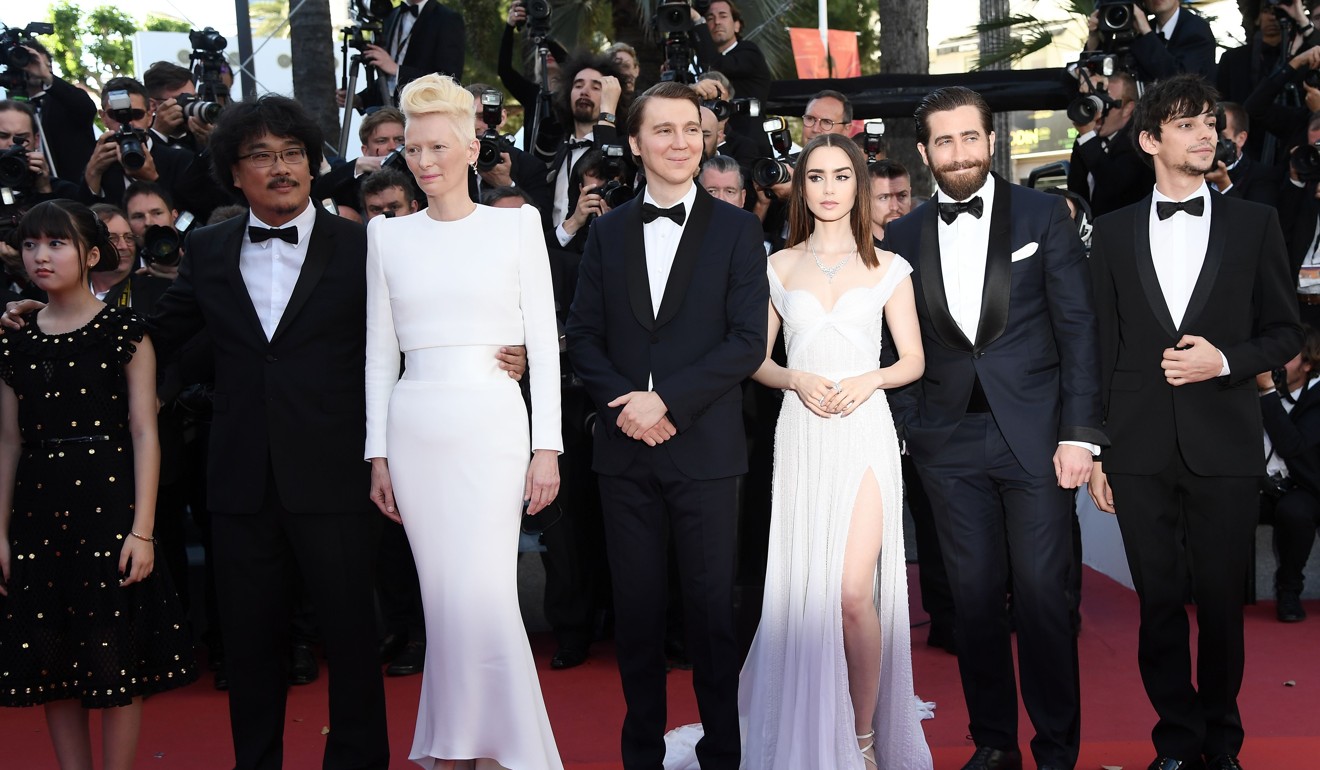
After the South Korean’s experience with his last film, 2013’s post-apocalyptic Snowpiercer – which saw a squabble with US distributor Harvey Weinstein, who wanted to cut 20 minutes from the running time – you could be forgiven for thinking the film gods were against him.
Yet there’s another way of looking at the whole experience. Run by Ted Sarandos, Netflix is gradually cultivating a reputation for working with great filmmakers on the sort of medium-budget films that a blockbuster-obsessed Hollywood increasingly overlooks.
“I loved working with Netflix, they gave me total freedom, in terms of the casting, shooting and editing,” says Bong, whose film will reach audiences in more than 190 countries on Netflix, as well as get a limited theatrical release in the US, UK and South Korea.
A blend of satire and fantasy, Okja focuses on the food industry and the fictionalised Mirando Corporation. As revealed in the film’s breathless prologue, back in 2007, this agrochemical company bred a giant super-pig to help alleviate the world’s food issues, with 27 of the animals sent across the globe to be hand-reared.
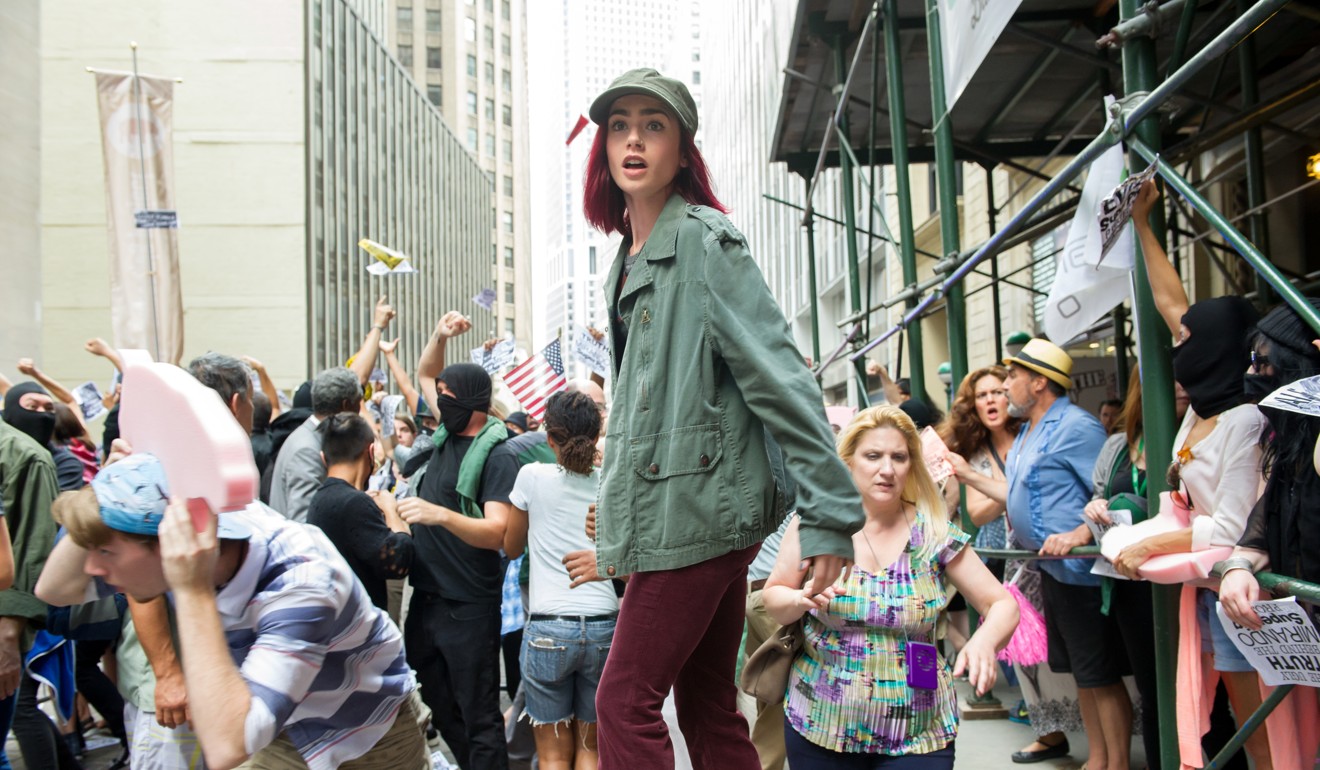
A decade on, with the Mirando team on a PR offensive, a competition is to be staged in New York to crown the world’s greatest super-pig.
Mija (Ahn Seo-Hyun), the young, rural South Korean girl has tended to her beloved pig Okja these past years only to see her animal taken away. So Mija teams up with members of the Animal Liberation Front (including Paul Dano, Lily Collins and Steven Yeun), who have their own reasons to help the hippo-like Okja.
A creature-feature far removed from Bong’s 2006 film, The Host, in which an amphibious monster haunts Korea’s Han River, Okja has the softness of Studio Ghibli’s My Neighbour Totoro, with its tender depiction of one girl’s love for her super-sized pig – except that it comes complete with a brutal visit to an abattoir, liable to be distressing for younger viewers. Don’t be surprised if pro-animal activists adopt this film as their standard-bearer in future.
“This wasn’t made to be an activist film or propaganda,” argues Bong, who co-wrote the script with journalist-turned-screenwriter Jon Ronson (Frank).
“It was made as a beauty project. It was supposed to be beautiful! I don’t think after watching this film, I want to convert everybody to veganism. Even Mija, the girl in the film, her favourite food is chicken stew. We’re just like her. We have a lovely puppy in our house, but at lunch, we eat steak. That’s very common, I think.”
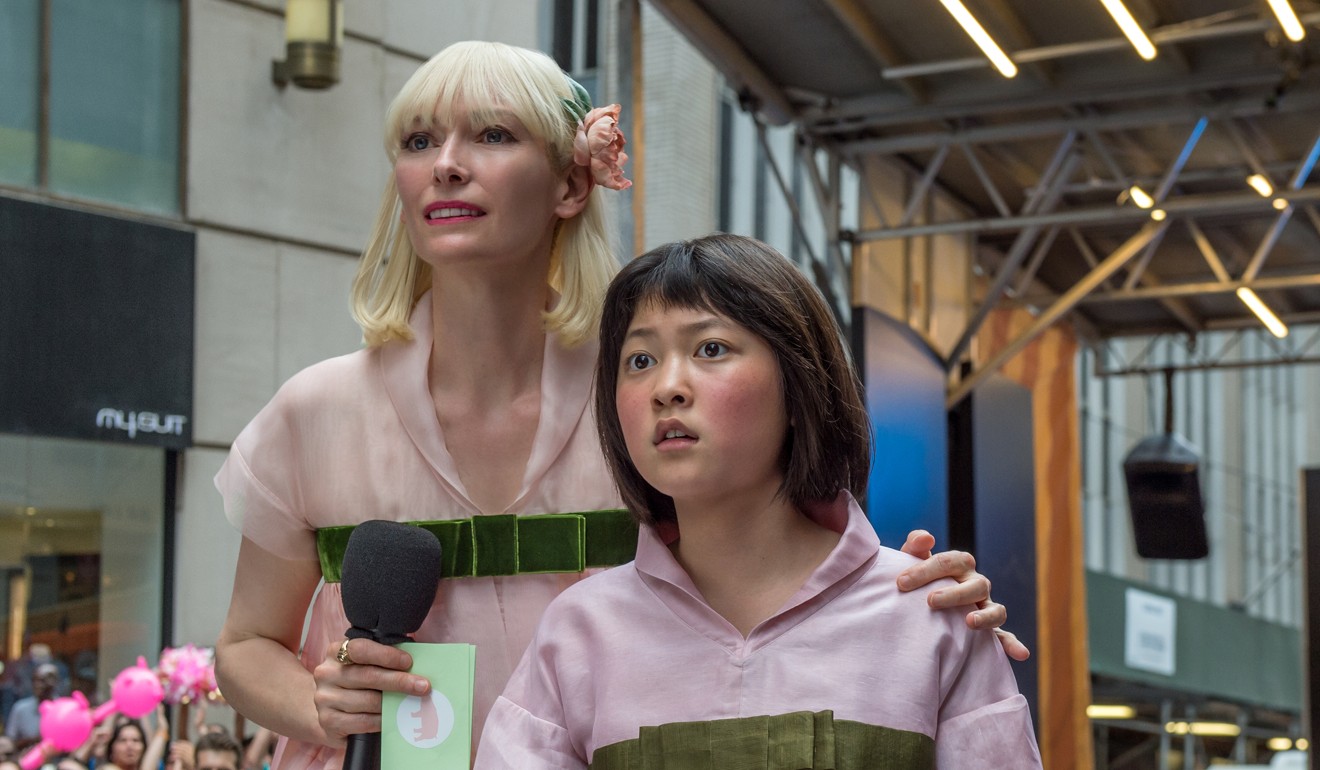
Maybe so, but a trip to a Colorado slaughterhouse as part of his research was so distressing, Bong went temporarily vegan – at least until he returned to Korea, “BBQ paradise” as he calls it.
He also watched La Parka, Nicaraguan director Sergio Arguello’s 2015 Oscar-nominated short film about a man who has spent 25 years killing bulls, and Our Daily Bread, a surreal 2005 peek into the world of food production. Other films on the menu including Fork Over Knives, a documentary about processed foods.
“The take-away for me was how important it was to be a conscientious consumer,” comments Dano, who plays Jay, the ALF leader. “Can you be a little more thoughtful about the way you get your meat and vegetables? And what’s in your food in general? It was eye-opening, even as a carnivore.”
Collins, who looks almost unrecognisable under a crop of dyed hair as Jay’s colleague Red, concurs. “It made me more aware of everything from food to make-up. Everything has something in it.”
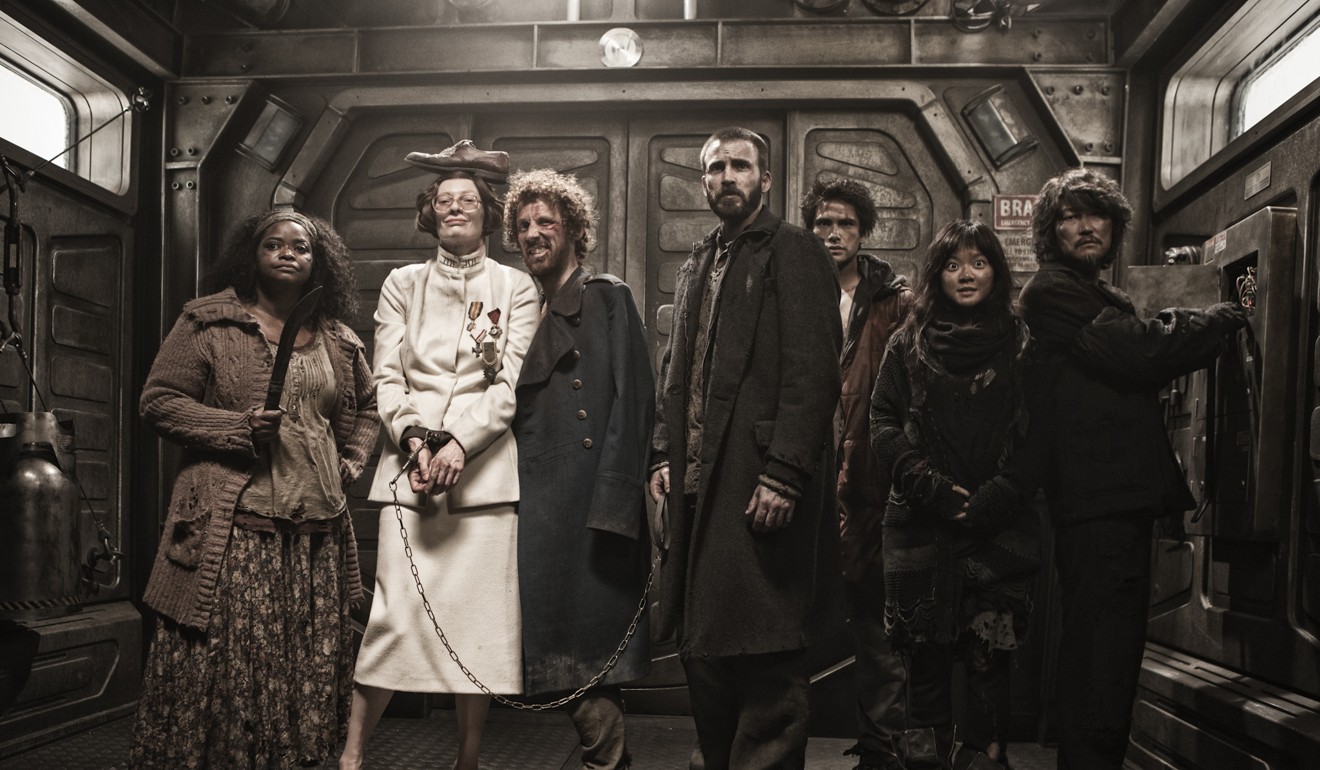
Bong admits he took the film in a more political direction with the post-production occurring at the same time as the 2016 US presidential election. When additional dialogue recording was captured, lines were adjusted – particularly those spoken by Tilda Swinton, Bong’s Snowpiercer star who returns here as Lucy Mirando, the ruthless head of the corporation, and her mysterious twin sister.
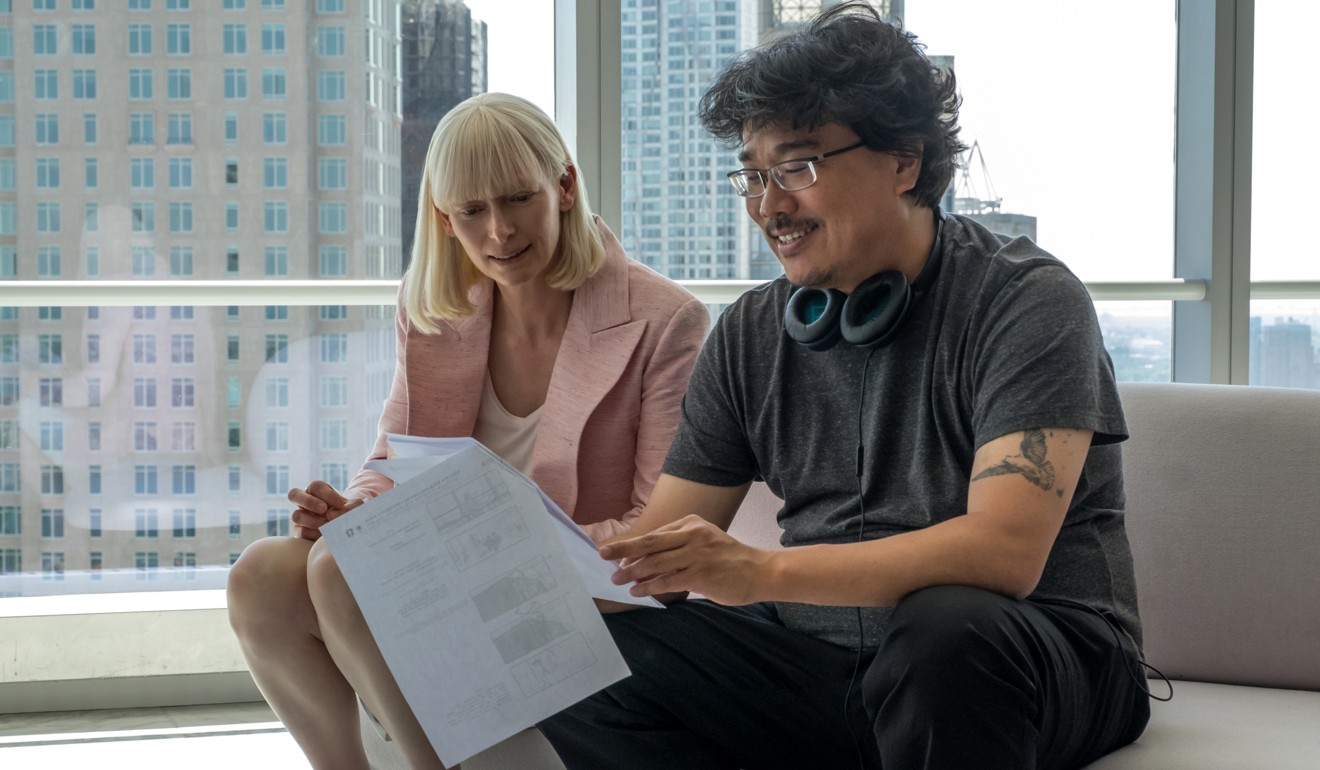
“We tried to make the lines with more political affiliation – she tried various voices that sounded like Trump,” says Bong, who reports that Trump and his daughter Ivanka were frequently cited as inspirations. “She always asked me, ‘Does it sound more like Trump?’ But because I’m a Korean film director, based in Korea, I don’t know the political state of the US. During that time, the Korean political climate was much more dramatic.”
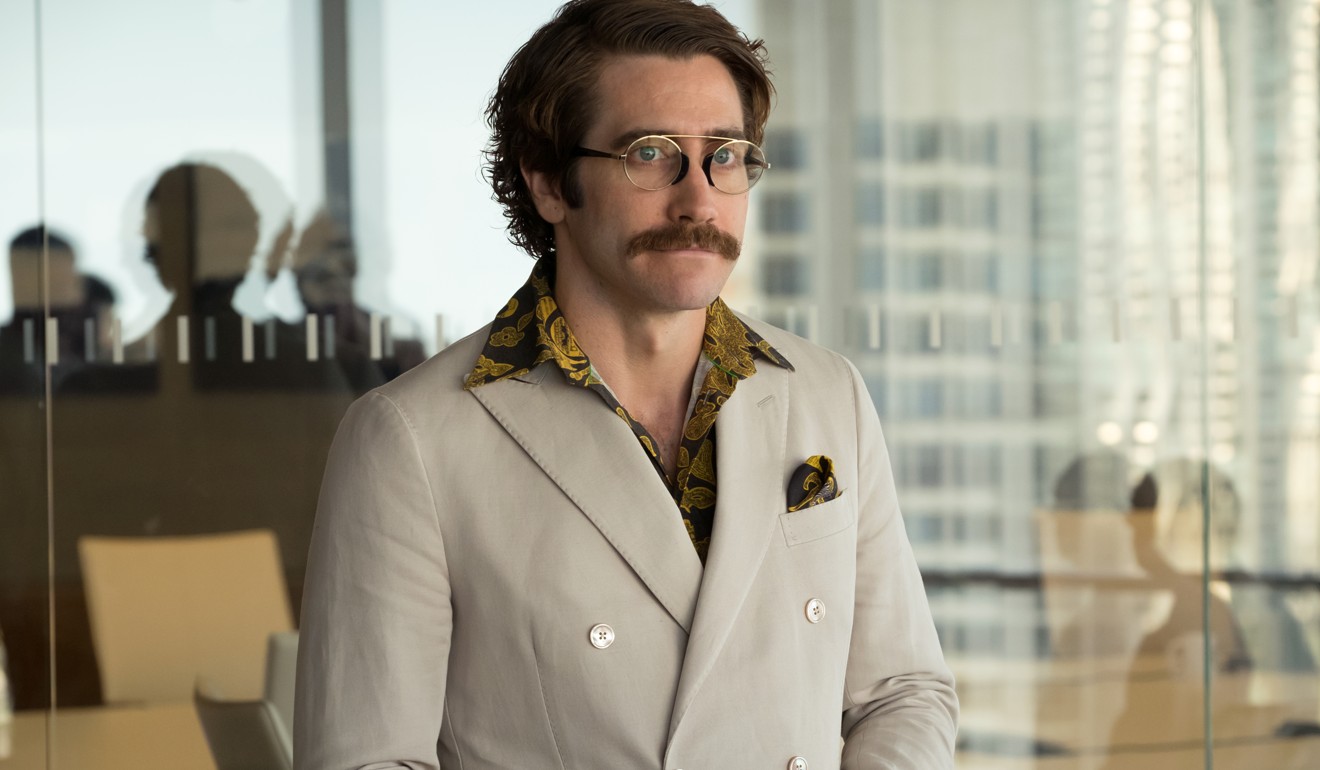
Jake Gyllenhaal, who appears as Mirando spokesman Dr Johnny Wilcox, says: “I’ve said this many times: films are political, no matter what they are.” They’re also powerful tools to express beliefs, he adds. “Entertainment allows you – and particularly something like this in terms of fantasy – deeper inside someone’s mind. There is a responsibility when someone comes and sits down in the dark – much like we do when we close our eyes at night – to communicate something.”
Whether it forces you to think on the future of food production or the future of cinema, Okja is certainly provocative. Returning to the big question – to stream or to screen – the seismic shifts are being felt.
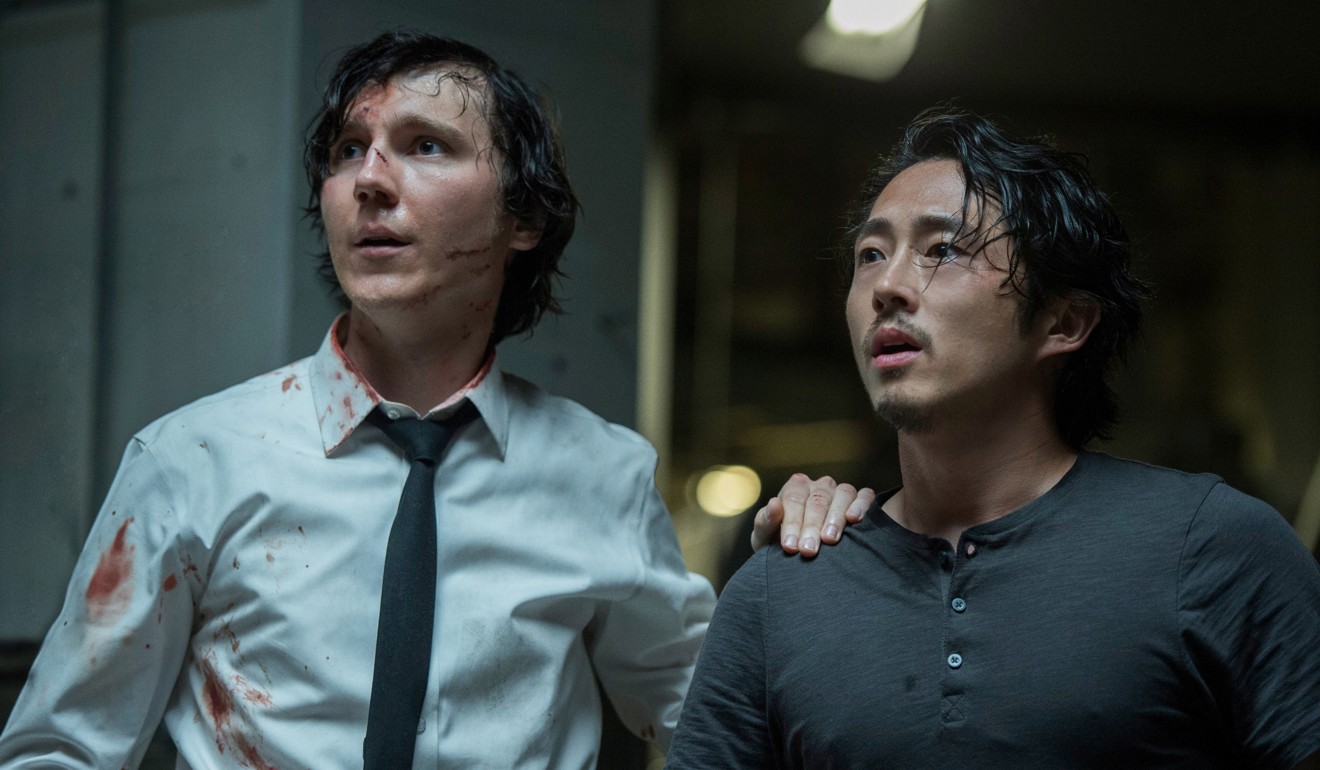
“We’re sitting directly in the middle of something that is definitely changing,” says Yeun, the Seoul-born star who plays ALF member K. “You have one side that really is nostalgic for the past and one side that’s really excited for the future. But, man, innovation always wins out in the end.”
Whether it’s nostalgia or not, there’s no question that Okja merits being watched on the big screen, thanks to Darius Khondji’s sublime cinematography and the superlative computer effects conjured by VFX supervisor Erik De Boer, who previously created the digitally rendered tiger in Ang Lee’s Life of Pi.
But in the end, it’s all about the quality of the content, right? “What’s most important to me, above the technology aspect, [is that] people have the chance to express themselves authentically and truly,” says Dano. “That’s the best way to make Okja.”
Okja is on Netflix from June 28
Want more articles like this? Follow SCMP Film on Facebook

 (1).JPG?itok=0BHk6odg&v=1665981271)